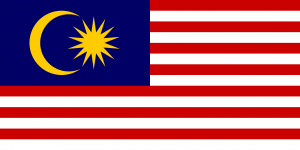Difference between revisions of "Language/Malay-individual-language/Grammar/Conditional-Mood"
m (Quick edit) |
m (Quick edit) |
||
| Line 5: | Line 5: | ||
Hi Malay (individual language) learners! 😊<br>In today's lesson, we will be discussing the conditional mood in Malay (individual language). This is an important part of the language and understanding it will help you to communicate more effectively. | Hi Malay (individual language) learners! 😊<br>In today's lesson, we will be discussing the conditional mood in Malay (individual language). This is an important part of the language and understanding it will help you to communicate more effectively. | ||
__TOC__ | __TOC__ | ||
<span link>Consider exploring these related pages after completing this lesson: [[Language/Malay-individual-language/Grammar/Adjectives-and-Adverbs|Malay (Individual Language) Grammar → Introduction → Adjectives ...]], [[Language/Malay-individual-language/Grammar/Future-Tense|Future Tense]], [[Language/Malay-individual-language/Grammar/Passive-Voice|Passive Voice]] & [[Language/Malay-individual-language/Grammar/Nouns-and-Pronouns|Nouns and Pronouns]].</span> | |||
== What is the Conditional Mood? == | == What is the Conditional Mood? == | ||
The conditional mood is used to express a hypothetical situation or condition. It is used to talk about what would happen if something were true. For example, if I said "If I had enough money, I would buy a car", this would be an example of the conditional mood. | The conditional mood is used to express a hypothetical situation or condition. It is used to talk about what would happen if something were true. For example, if I said "If I had enough money, I would buy a car", this would be an example of the conditional mood. | ||
| Line 27: | Line 29: | ||
<br><hr>If you have any questions, please ask them in the comments section below.<br>Feel free to edit this wiki page if you think it can be improved. 😎 | <br><hr>If you have any questions, please ask them in the comments section below.<br>Feel free to edit this wiki page if you think it can be improved. 😎 | ||
==Other Lessons== | |||
== | |||
* [[Language/Malay-individual-language/Grammar/Plurals|Plurals]] | * [[Language/Malay-individual-language/Grammar/Plurals|Plurals]] | ||
* [[Language/Malay-individual-language/Grammar/How-to-Use-Be|How to Use Be]] | * [[Language/Malay-individual-language/Grammar/How-to-Use-Be|How to Use Be]] | ||
| Line 41: | Line 41: | ||
{{Malay-individual-language-Page-Bottom}} | {{Malay-individual-language-Page-Bottom}} | ||
<span links></span> | |||
Latest revision as of 20:58, 27 March 2023
Hi Malay (individual language) learners! 😊
In today's lesson, we will be discussing the conditional mood in Malay (individual language). This is an important part of the language and understanding it will help you to communicate more effectively.
Consider exploring these related pages after completing this lesson: Malay (Individual Language) Grammar → Introduction → Adjectives ..., Future Tense, Passive Voice & Nouns and Pronouns.
What is the Conditional Mood?[edit | edit source]
The conditional mood is used to express a hypothetical situation or condition. It is used to talk about what would happen if something were true. For example, if I said "If I had enough money, I would buy a car", this would be an example of the conditional mood.
How to Form the Conditional Mood[edit | edit source]
The conditional mood is formed by using the verb "akan" followed by the infinitive form of the verb. For example, if I wanted to say "I would go", I would say "Saya akan pergi".
Examples[edit | edit source]
Here are some examples of the conditional mood in action:
- Jika saya ada wang, saya akan beli kereta. (If I had money, I would buy a car.)
- Jika saya tahu jawapan, saya akan katakan. (If I knew the answer, I would tell you.)
- Jika saya boleh, saya akan pergi. (If I could, I would go.)
When to Use the Conditional Mood[edit | edit source]
The conditional mood is used when talking about hypothetical situations or conditions. It can also be used to express wishes or desires. For example, if I said "If I had enough money, I would buy a car", this would be expressing a wish or desire.
It can also be used to make polite requests. For example, if I said "If you could help me, I would be very grateful", this would be a polite request.
Conclusion[edit | edit source]
In conclusion, the conditional mood is an important part of the Malay (individual language) language. It is used to express hypothetical situations or conditions, wishes or desires, and polite requests. Understanding how to use the conditional mood will help you to communicate more effectively in Malay (individual language).
If you have any questions, please ask them in the comments section below.
Feel free to edit this wiki page if you think it can be improved. 😎
Other Lessons[edit | edit source]
- Plurals
- How to Use Be
- Future Tense
- Adjectives
- Give your Opinion
- Nouns
- How to Use Have
- Questions
- Negation
